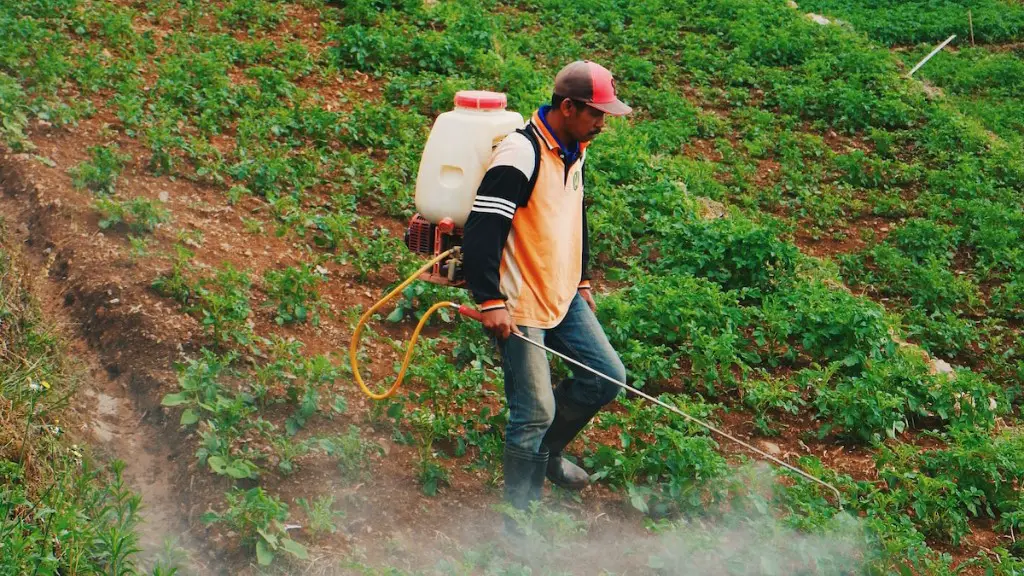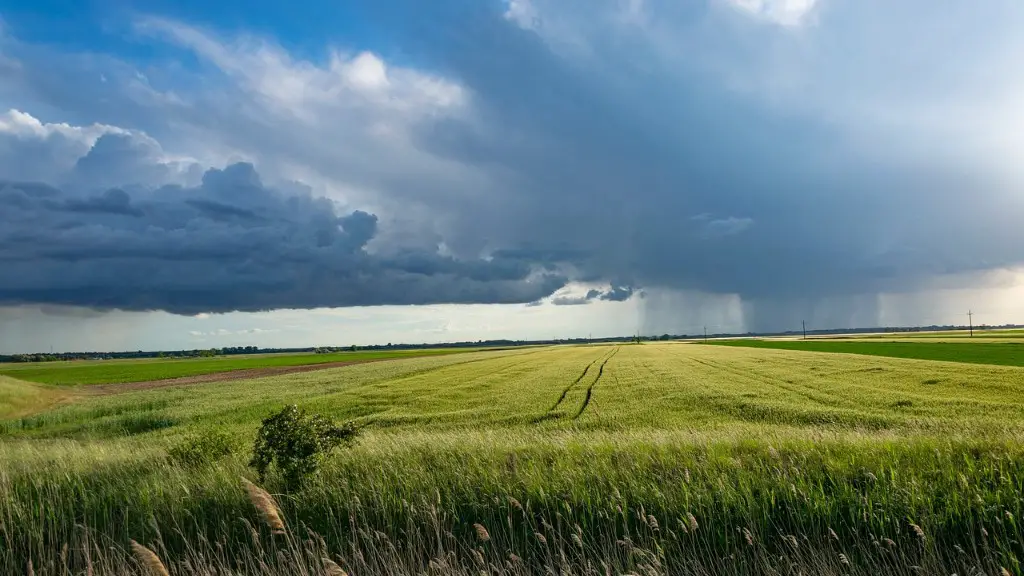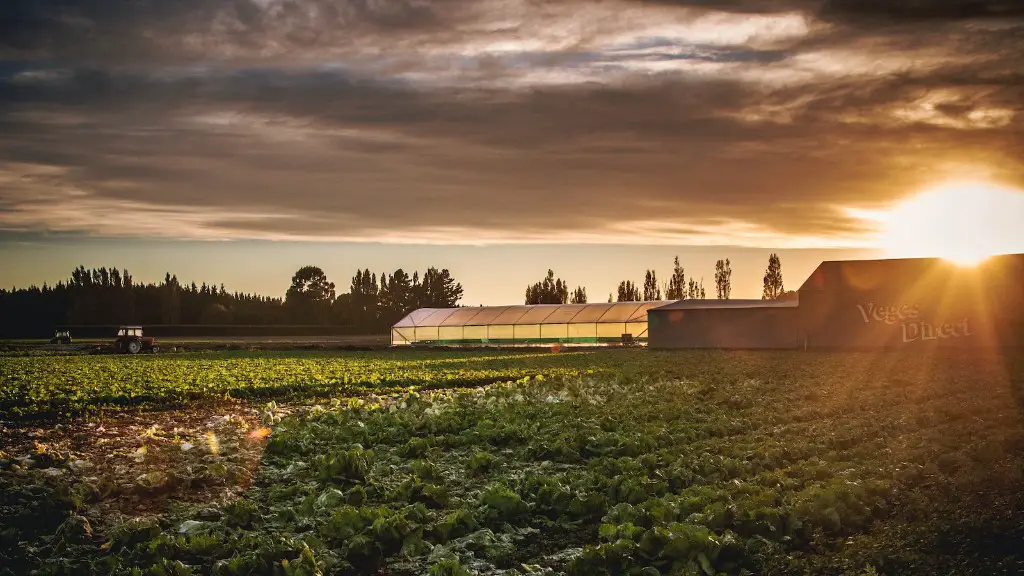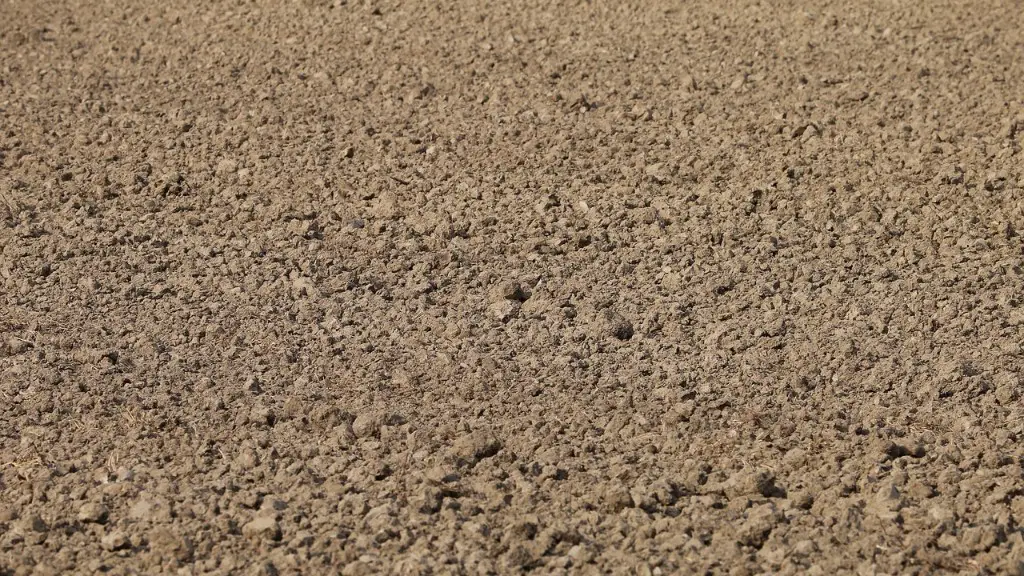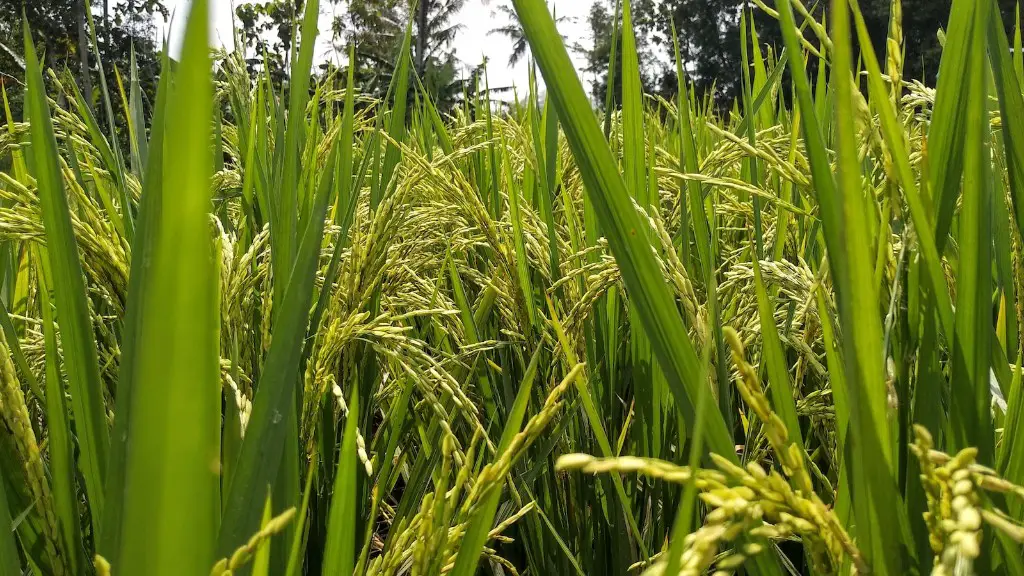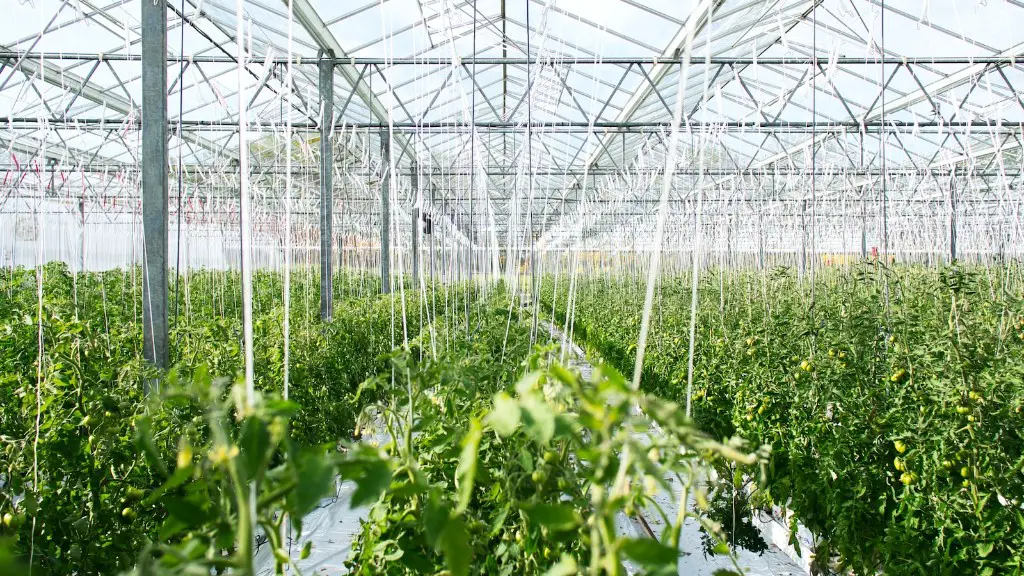Industrial agriculture is a system of farming that relies on heavy use of synthetic pesticides, herbicides, and fertilizers, as well as on large-scale mono-cropping, factory farming, and meat production. This type of agriculture has a major impact on the environment, as well as on the quality of the food that is produced.
There are a number of reasons why industrial agriculture is bad. First, it is extremely resource intensive, requiring large amounts of land, water, and energy to produce food. This intensive use of resources often leads to environmental degradation, as well as greenhouse gas emissions. Second, industrial agriculture is very efficient at producing food, but this efficiency comes at the expense of the quality of the food. Nutrients and vitamins are often lost during the production process, leaving food that is less nutritious than it could be. Finally, industrial agriculture is often responsible for the overuse of antibiotics and other chemicals, which can lead to antibiotic resistance and other health problems.
Why is the agriculture industry bad?
Industrial agriculture is bad for many reasons. First, it is a leading cause of human-related emissions fueling climate change. Second, it is a major source of both water and air pollution. Third, it is the principal cause of antibiotic resistance and pesticide toxicity. All of these factors contribute to the overall decline of our environment and the health of our planet.
Industrial farming is bad for the health of workers, eaters, and downstream neighbors. Here are some of its costly health impacts:
Pesticide toxicity: Herbicides and insecticides commonly used in agriculture have been associated with both acute poisoning and long-term chronic illness.
Water pollution: Agricultural runoff is a major source of water pollution, as it can contain harmful chemicals from pesticides, fertilizers, and livestock waste. This can lead to serious health problems for people who consume contaminated water.
Air pollution: Factory farms emit large amounts of air pollution, including methane, ammonia, and hydrogen sulfide. This pollution can cause respiratory problems, neurological damage, and other health problems.
Soil contamination: Industrial farming can lead to soil contamination from chemicals, manure, and other waste products. This can contaminate food and water supplies, and cause health problems for people who come into contact with the contaminated soil.
What are four negative impacts of industrial agriculture
While large-scale, conventional farming can be successful in producing high levels of a single crop, it comes at a great cost to the environment. This type of farming contributes to climate change, pollutes air and water, and depletes soil fertility, all of which have a negative impact on the planet.
Industrial agriculture has both its pros and cons. On one hand, it increases food production and can be more efficient than traditional farming methods. However, it also increases the risk of animal cruelty and can be detrimental to the environment.
Why was agriculture the worst mistake?
Farming allowed for the domestication of plants and animals, which led to the development of civilizations. This in turn led to the development of deep class divisions, with a small elite class controlling the food supply. The masses were dependent on the elite for their food, and this led to exploitation and suffering.
There are two major problems in agriculture: the loss of agricultural land and the decrease in the varieties of crops and livestock produced. Agricultural land is being lost due to development and the expansion of cities. The loss of agricultural land decreases the amount of land available for farmers to grow crops and raises the price of land. The decrease in the varieties of crops and livestock produced is due to the loss of genetic diversity. When farmers grow the same crop year after year, they are more likely to lose the genetic diversity that makes the crop resistant to pests and diseases. The loss of genetic diversity also decreases the nutrition content of the crop.
What are three major problems of industrial agriculture?
Industrial agriculture is responsible for a host of environmental problems. Deforestation, climate change, irrigation problems, pollutants, soil degradation and waste disposal are all issues that can be traced back to industrial agriculture. This form of agriculture is very resource intensive, and as such, it puts a strain on the environment. In addition, the methods used in industrial agriculture are often unsustainable, meaning that they can lead to long-term damage to the environment.
The effects of the Industrial Revolution were both positive and negative. On the positive side, technological advances led to new, more efficient ways of producing goods and services. This increased productivity and allowed people to live better lives. On the negative side, the Industrial Revolution led to terrible working and living conditions for many people, as well as widespread pollution and environmental damage.
How does industrial agriculture affect the economy
The agricultural and food sectors are a vital part of the US economy, providing 105 percent of total employment. In 2021, 211 million full- and part-time jobs were related to agriculture and food, making it one of the largest employers in the country. The sector is also a major contributor to the US Gross Domestic Product (GDP), accounting for $1.1 trillion in 2020.
The agricultural and food sectors are responsible for a wide range of products and services, from the food we eat to the clothes we wear. They also play a critical role in the US trade balance, with agricultural exports totaling $139 billion in 2020.
The agricultural and food sectors are vital to the US economy and provide millions of jobs. They are also a major contributor to the US trade balance, making them a key part of the country’s economic stability.
The Industrial Revolution was a time of great technological advancement, but it also had its drawbacks. Poor working conditions, for example, were common in factories and mills. Laborers often worked long hours for low wages, and children were often employed in hazardous conditions. Additionally, the rise of industry led to increased pollution and poor living conditions in urban areas.
Is the agriculture industry bad for the environment?
In many countries, agriculture is the leading source of pollution. Pesticides, fertilizers and other toxic farm chemicals can poison fresh water, marine ecosystems, air and soil. They also can remain in the environment for generations.
The loss of biodiversity due to the expansion of agriculture is a major environmental issue. Agriculture has caused massive losses in biodiversity around the world by converting natural habitats to farms and pastures, polluting the environment with pesticides and fertilizers, and degrading soils. This has had a negative impact on the environment and on the people who depend on it.
What are disadvantages of industrial area
Industrialization brings about many negative externalities, one of the most notable being environmental pollution. This is caused by factories and other industrial facilities spewing harmful chemicals and toxins into the air, water, and soil. This pollution can cause serious health problems for people and animals, and can damage crops and other vegetation. Another negative effect of industrialization is the separation of capital and labor. This separation leads to a disparity in incomes between those who control capital resources (such as factory owners) and laborers. This can create social and economic tension between these two groups, as well as between developed and developing nations.
Agribusiness is responsible for the clearance of huge areas of forest worldwide. This is done to make space for crops and livestock. This results in the loss of trees and wildlife habitats. It also contributes to climate change.
What is wrong with modern agriculture?
This is a complex issue with many factors at play. On the one hand, our foods are indeed becoming less nutrient-rich due to the way they are grown and processed. On the other hand, contamination by pesticides, herbicides and fungicides is a serious problem that needs to be addressed. Global conventional agriculture also has negative social consequences, including land-grabbing, unfair working conditions and excessive waste. We need to find a way to address all of these issues in a comprehensive and holistic way.
Jared Diamond was right when he said that the invention of agriculture was the biggest blunder in human history. Even though we are stuck with it now, we need to make it work better than ever for the future of humankind and the planet. With so many mouths to feed today, we need to be more efficient in our agriculture practices.
Why are farmers killing their crops
The survey revealed that 50% of farmers in California have had to remove trees and multiyear crops due to drought. This will affect future revenue for the state, which has high fruit and nut tree crops.
Climate change, soil erosion, and biodiversity loss are major global challenges. To cope with these challenges, farmers must be able to adapt their practices to satisfy changing consumer tastes and expectations, while also increasing farm productivity. One way to do this is to invest in new technologies and practices that can help farmers increase their yields and improve the quality of their products.
Conclusion
There are a number of reasons why industrial agriculture is bad. First, it is very resource intensive, requiring large amounts of land, water, and energy to produce food. This can lead to environmental degradation, as well as higher greenhouse gas emissions. Second, industrial agriculture often uses harmful pesticides and fertilizers, which can contaminate soil and water resources, and potentially cause health problems in people and animals. Third, the industrial agriculture system is very reliant on monoculture crops, which can make farmers vulnerable to crop failures if the crop is hit by a pest or disease. Finally, the factory-like conditions of industrial agriculture can lead to poor animal welfare, as animals are often kept in cramped, stressful conditions.
Industrial agriculture is extremely harmful to the environment. It is a leading cause of soil erosion, water pollution, and habitat destruction. Additionally, industrial agriculture relies heavily on chemicals, which can leach into the soil and contaminate groundwater. These chemicals can also end up in our food supply, posing a serious health risk.
